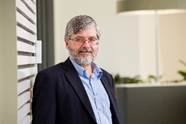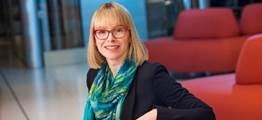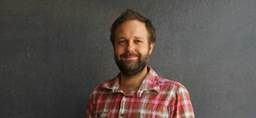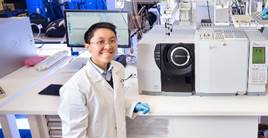Bio21 Director’s Message: Acknowledging different experiences and impacts of Covid-19 on Bio21 community members - 19 November 2020
 As we slowly approach a “COVID-normal” return to Bio21, I thought it worth reflecting, in a series of invited Digest messages, on the hardships some of our community have endured and continue to endure by the pandemic. However, it has been heartening to see that some exciting new opportunities also have and will emerge as we return to Bio21. In this message our Associate Director for Engagement, Sally Gras, reflects on her experience over the last few months followed by some observations from David Stroud and Kim Kwan:
As we slowly approach a “COVID-normal” return to Bio21, I thought it worth reflecting, in a series of invited Digest messages, on the hardships some of our community have endured and continue to endure by the pandemic. However, it has been heartening to see that some exciting new opportunities also have and will emerge as we return to Bio21. In this message our Associate Director for Engagement, Sally Gras, reflects on her experience over the last few months followed by some observations from David Stroud and Kim Kwan:
 Sally Gras, Bio21 Associate Director for Engagement:
Sally Gras, Bio21 Associate Director for Engagement:
“Everyone in our community has a different pandemic experience. Many are enjoying not having to commute. Others find the isolation and uncertainty challenging.
The situation is dynamic and varies across the Institute and across the wider academic world. In our group, I am proud of the way we have calmly adapted to change but some things are beyond our control: a new PhD student has been stuck in Wuhan from the very start of the pandemic, other international fellows and visiting students have been unable to travel to Australia. We are learning strategies from our collaborators interstate and in Italy, UK, France, Ireland and Denmark who are transitioning in and out of lockdown as the pandemic spreads and is then checked.
Large changes to our everyday pattern of work give us an opportunity to think about how we can do things differently. We have found the re-examination of old data yielded new insights. We have written reviews and performed simulations. Those students who are lucky enough to work on cheese protein microstructure have performed freezing experiments at home.
While we haven’t been able to visit the sites of our industry collaborators, we have still been able to organise some very big (multi-tonne) six-month cheese manufacturing trials. This has perhaps even been easier to arrange, given everyone’s availability on Zoom at short notice.
We have also been working with CSL Innovation to identify how new research could increase the productivity of vaccine and other drug manufacturing to increase Australia’s resilience. A spike in enrolments in Pharmaceutical Engineering has shown how our masters students are wanting to learn and contribute too.
More broadly, we have missed the conversations and engagement that form Bio21’s social fabric. The pandemic has shown us the value of everyday exchanges we often take for granted. Our own local difficulties are put in perspective, however, talking to members of Bio21 and our broader Global science community who have family and friends in worse affected regions of the world: Indonesia, Iran, India, Brazil and Russia to name a few. These discussions highlight how fortunate we are to have an evidence-based approach to slowing local virus spread and the sovereign capability for vaccine manufacture at CSL.
I hope that as a scientific community we can learn from these experiences and can apply our unique knowledge and skills to assist national and international recovery. With a renewed sense of purpose and the value of scientific knowledge and method, we can also help Australia prepare for the challenges the world faces in coming decades.“
Prof Sally Gras is a Biochemical engineer and leader of the Gras group in Bio21. She is Director of The ARC Dairy Innovation Hub, Leader of Food and Agribusiness in Engineering and Associate Director for Engagement at the Bio21 Institute. Her research group combines biology, chemistry and mathematics with engineering to solve technical challenges in food and pharmaceutical production.
Also, David Stroud, Honours Coordinator, School of Biomedical Sciences, reminds us of the challenges of this year’s cohort of Honours students:
 David Stroud, Bio21 Group Leader, Department of Biochemistry and Molecular Biology
David Stroud, Bio21 Group Leader, Department of Biochemistry and Molecular Biology
“The Honours students have had it really tough this year, two "lock-downs", learning how to do research over Zoom, and just a general lack of certainty throughout the year. They’ve all done really well and it’s a testament to their resilience - it will be great to hear their stories when they give their final seminars this week.”
 Kim Kwan, Metabolomics Australia
Kim Kwan, Metabolomics Australia
Finally, Kim Kwan is one of the Mental Health Advisors at Bio21 for the Faculty of Science and part of the Metabolomics Australia team and has these thoughts to share, as well as a reminder of some of the resources we can all access in need:
“As Melbourne starts to open up again and we look back on the year where the world has rapidly changed around us, it leaves many heaving a sigh at the frustration and fatigue faced with our work and life situations. Wherever we are right now, we can continue to make choices to move ourselves forward. This will look different for each person, but no matter how small or slow, whether it is visible or intangible, progress is progress.”
Here are some resources that Bio21 members can all access:
Lifeline on 13 11 14
Beyond Blue on 1300 224 63
Headspace on 1800 650 890
ReachOut at au.reachout.com
Something for people to pause and reflect on: https://www.mindaustralia.org.au/sites/default/files/How_are_you_going_tool.pdf
This presents the well-known concepts of meditation/breathing exercises in a way that I hope is more engaging to science/research minded people: https://hbr.org/2020/09/research-why-breathing-is-so-effective-at-reducing-stress.
And on an upbeat note from medical students at the University.
Yes, it has been a challenging year for many of us. Please feel free to share with me your suggestions for how to keep our Bio21 community strong, even as some of us are not yet able to return to the bench.
Stay safe
Michael Parker
Director, Bio21 Institute

